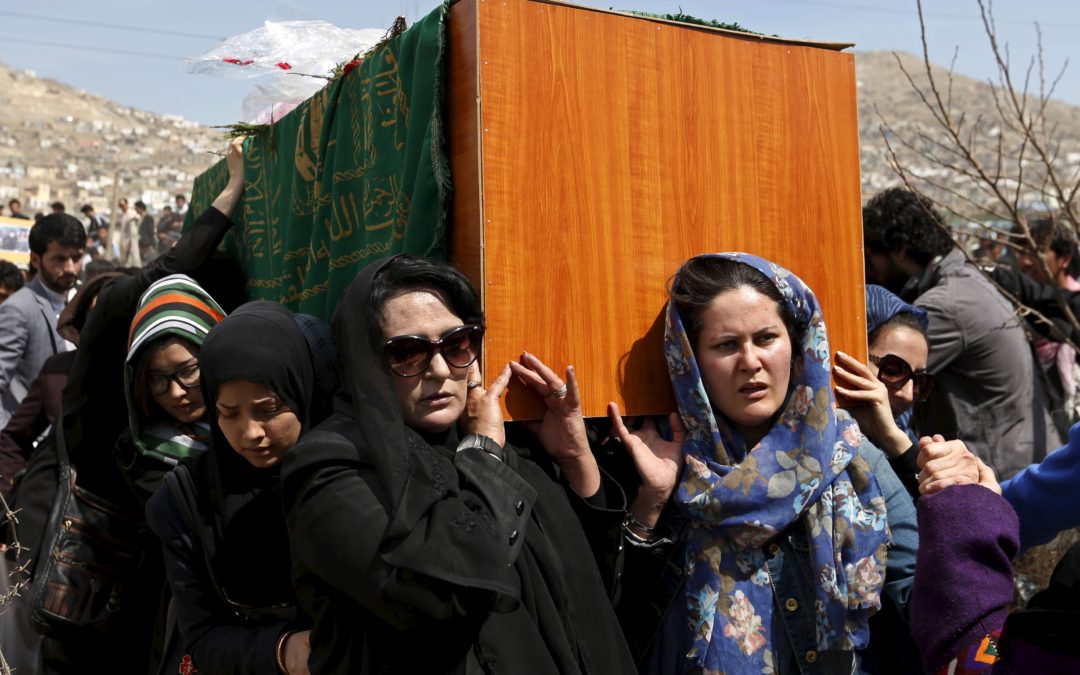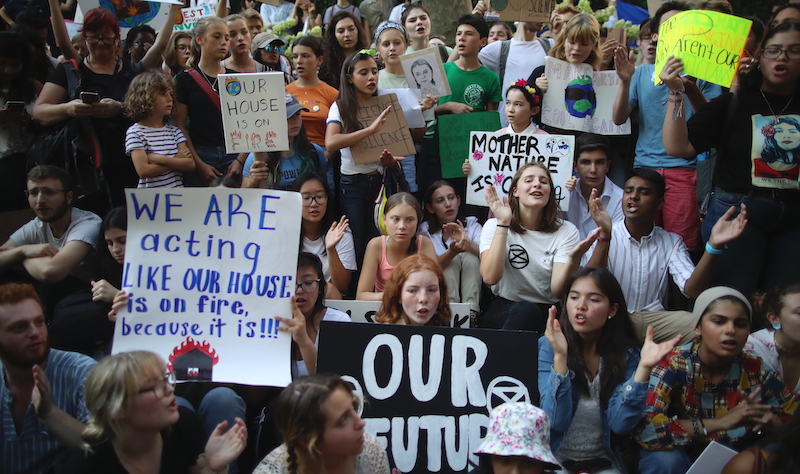“A major legacy of the US war on terror in Afghanistan, which began in October 2001 and shows little sign of actually ending anytime soon, will be the “explosive remnants of war”—a term for all the landmines and un-exploded bombs and other weaponry that have been left behind in the earth.” The Nation reports on the debris of war, the un-exploded ordinances that still litter Afghanistan today endangering thousands of lives.
Western countries are still debating how to prepare for climate change and their priority for aid remains ‘security.’ But for those in the Sahel region of Africa, as the Middle East Eye reports, the consequences of climate change are being felt by hundreds of thousands of farmers who have been displaced.
The power of unions has diminished significantly in the U.S. over the past 50 years. But, as The Intercept reports, that hasn’t stopped companies from trying to discredit the few unions that are still around in whatever way they can, especially when it comes to a strike.
Over a year ago, an anonymous op-ed was published in the New York Times, chronicling the apparent resistance inside the Trump administration. CounterPunch argues how unhelpful a piece like that was as Trump administration has announced a variety of anti-people policies since then. ‘The Administration’s inside resistors didn’t stop any of these policies. Did they even try? Missing from the op-ed is any sign of concern for the well-being of ordinary Americans.’
Grist reports: ‘Over the years, fossil fuel companies have poured millions into sowing doubt about climate scienceand burnishing their public image. Now, fossil fuel companies are reckoning with a different communications challenge: convincing their investors that the future of oil and gas companies is bright … or at least bright enough.’
The Ghion Journal has a scathing article about the standard practice of calling countries the U.S. opposes as dictatorships. ‘The forces of Western empire may seem all-powerful and beyond accountability, but history is turning against them. The Pentagon itself stated in 2017 that American power is rapidly declining, and the decolonized socialist countries are looking to become the prime shapers of the world of the 21st century.’
|





 It’s not uncommon for a business to try and skirt around new rules and regulations that would make them pay more money to their workers. What tends to be less common is a publication advancing the cause of a corporate entity.
It’s not uncommon for a business to try and skirt around new rules and regulations that would make them pay more money to their workers. What tends to be less common is a publication advancing the cause of a corporate entity.  On Friday, millions across the world came out on streets to bring greater attention to the issue of climate change and to get their voices heard.
On Friday, millions across the world came out on streets to bring greater attention to the issue of climate change and to get their voices heard.  Israel has kept the people of Palestine subjugated for years, and a recent snap election will not change the situation. As
Israel has kept the people of Palestine subjugated for years, and a recent snap election will not change the situation. As 

 The recent decision by Trump to fire his national security adviser, John Bolton, has left many wondering what could have caused the rift between the two to develop to such a degree.
The recent decision by Trump to fire his national security adviser, John Bolton, has left many wondering what could have caused the rift between the two to develop to such a degree. 


